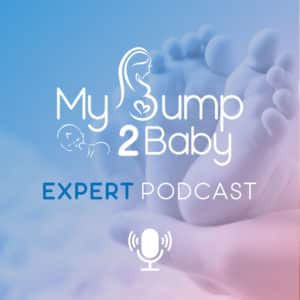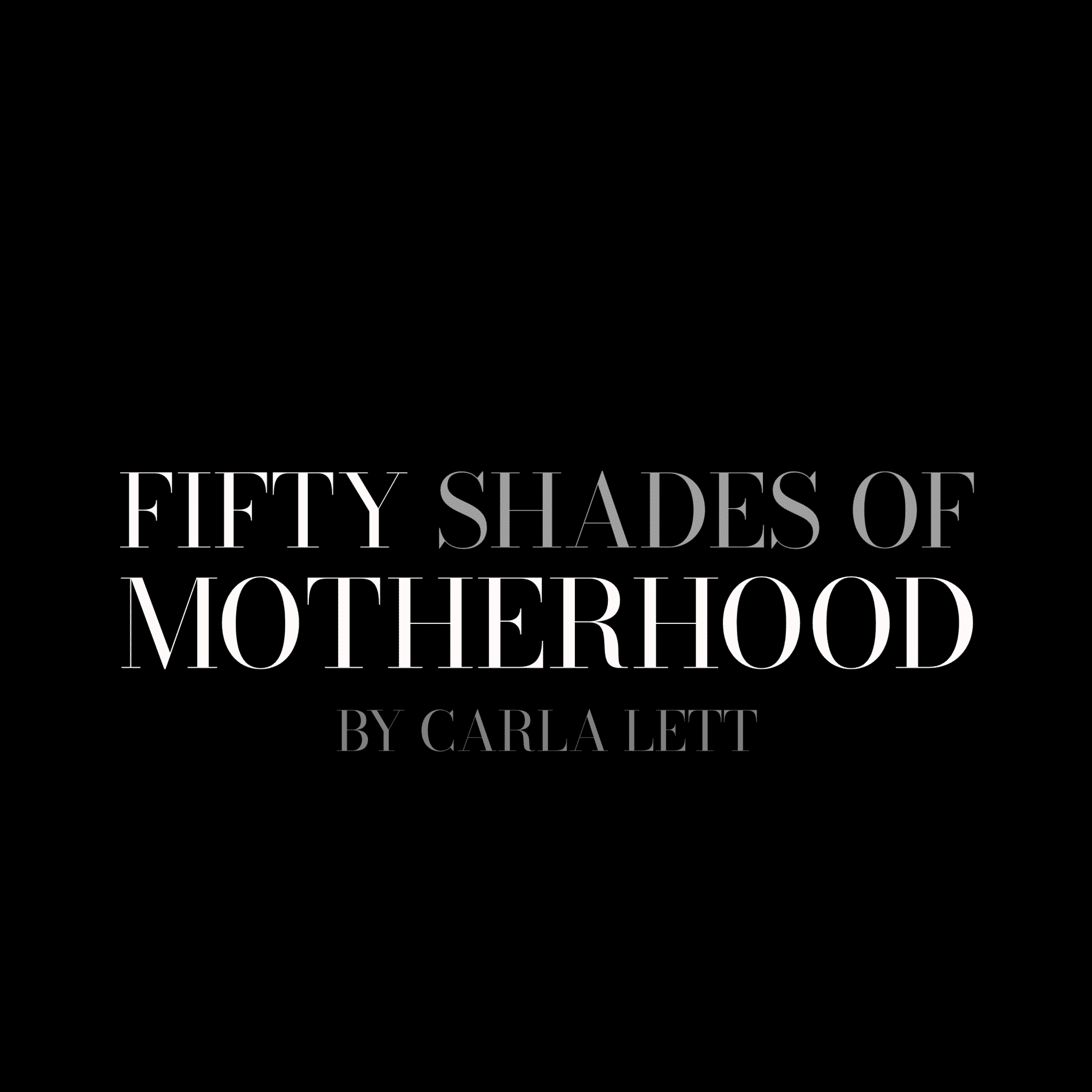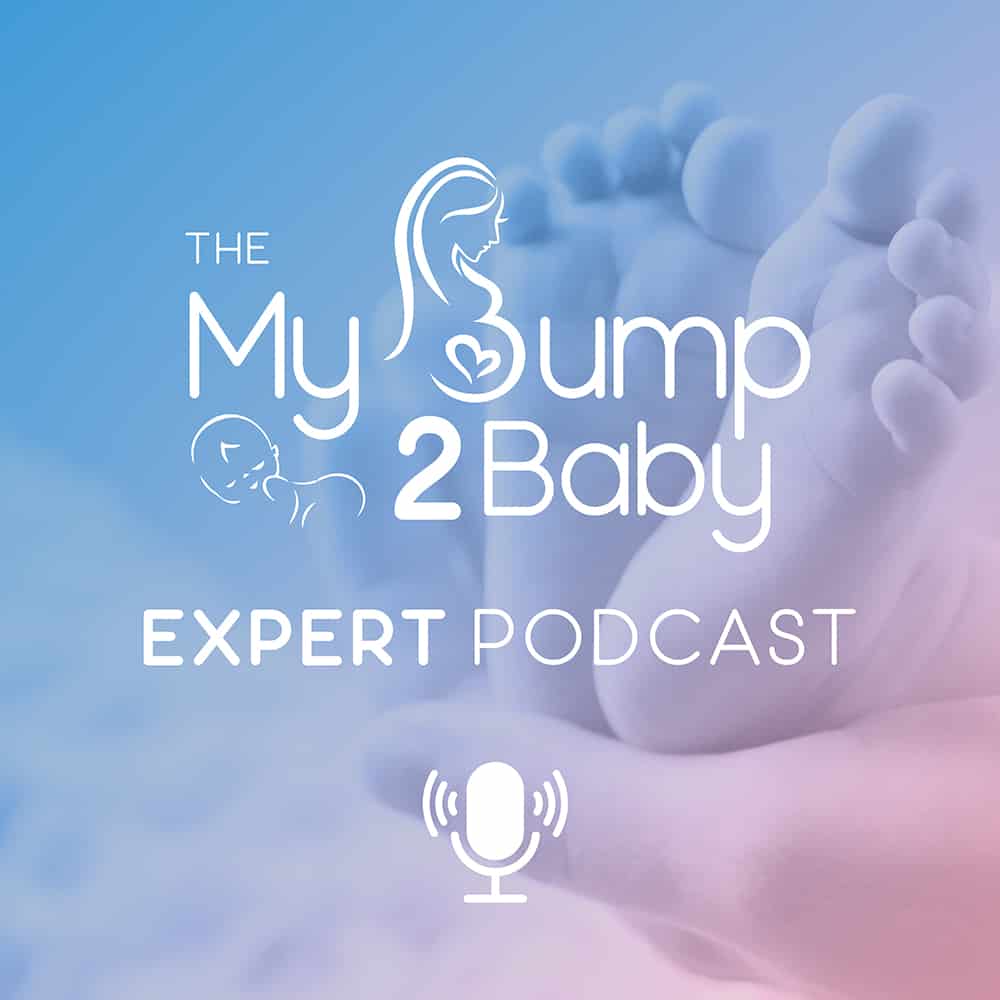- Everything You Need To Know About Private Pensions
Today we speak with Stuart Porter from Periscope Wealth in Altrincham. We discuss everything to do with pensions, from the different types, how to track old pensions and how flexible pensions can actually be.
To find your nearest financial advisor head to:
www.mybump2baby.com/familyprotectionlegal
Read Stuarts article about pension here:
https://www.mybump2baby.com/everything-you-need-to-know-about-a-personal-pension
You can contact Periscope legal at:
Website: https://periscopewealth.co.uk
Telephone: 0161 416 6572
Email: [email protected]
Carla: This podcast is sponsored by My Bump 2 Baby Family Protection and Legal Directory to find your nearest advisor or family law, solicitor, head over to www.mybump2baby.com/familyprotectionlegal.
[00:00:21] Do you love the idea of being your own boss? What about saving money on childcare? Because you can actually work flexibly around your family.
[00:00:33] My Bump 2 Baby is rapidly expanding and we are looking for people to run their own pregnancy to preschool hubs in their local area. Full training is provided, ongoing mentor support, fantastic regular team incentives. A bonus scheme, uncapped commission, review products for free and review days out too.
[00:01:02] If you are interested in being the, my Bump 2 Baby manager for your local area, email us [email protected] .Limited space available.
[00:01:28] Hello and welcome to My Bump 2 Baby Expert Podcast, where we bring experts from all over the UK to answer your questions on everything, pregnancy to preschool.
[00:01:50] Today, we are talking all about a very important subject that many of us forget about. Many of us mums end up working flexibly in different jobs around our families and leaving jobs behind. And sometimes what that can mean is actually leaving pensions behind as well. Pensions that we’ve actually paid into for a very, very long time.
[00:02:14] So today we’re going to be talking all about pensions and what pensions are, what the different pensions are, the benefits of paying into them and how flexible they can actually be. Today. My special guest is Stuart Porter from Periscope Wealth Limited.
[00:02:41] Hello everybody and welcome to My Bump 2 Baby’s Expert Podcast. Today we have Stuart Porter, a financial advisor who works at Periscope Wealth Limited in Altrincham in Manchester. Hello, Stuart.
[00:02:58]Stuart: Hello there, Carla. How are you?
[00:02:59] Carla: I’m very well, thank you. How are you?
[00:03:02] Stuart: I’m good. Thank you very much.
[00:03:03] Carla: Good. Good. So today, we are going to be talking all about pensions because I think, um, definitely as a mum, um, pensions is something you can easily forget about and it’s very, very important isn’t it? So today Stuart I’m going to be asking you some questions around pensions, but to start with, can you tell us a little bit about you.
[00:03:25] Stuart: Absolutely. Um, I’m, I’m married, I’ve got a young family. Um, my son is seven. My daughter is 12. Um, I’ve, I’ve been a financial advisor for, uh, over 30 years. Um, and. To be perfectly honest, the older you become, the wiser you become. I know it’s a bit of a cliche, but that is certainly the case, but seeing , my son and my daughter grow up as, as they are doing. Um, you know, I want the best for them. And as, as I get closer to retirement, it’s something that I want to make sure that for myself and for my wife, that standard of living doesn’t drop that, you know, everything we work for is protected, but, um, yes, it’s, uh, it’s financial services is, is something that, I’ve had a lot of, uh, I’ve done a lot of elements, uh, in terms of giving financial advice, I suppose, to the personal customers, you know ,businesses, uh, work with people with hardly any money and people with millions. So I’ve seen the whole range of, of different, um, situations and, uh, and hopefully, uh, being able to help them and give them advice, um, which they found very useful.
[00:04:38] Carla: Definitely I think, financial advice when it comes to having a growing family is so, so important, which is why obviously we work with trusted advisors throughout the UK. And your obviously are one for Altrincham. So Stuart, can we start with just keeping it simple? What actually is a pension plan?
[00:04:57] Stuart: I think the easiest way to describe a pension is, is that it is just a savings scheme that helps people build up a pot of money to the point when they retire. Um, I think pensions gets confused because people talk about receiving their pension when they’ve actually stopped working, but then people refer to pensions when they still are working. So pensions to a certain degree they are in two elements. There’s the saving element for which saving for your retirement may be through a pension scheme. It might be through other means of savings such as ISA’s. Um, but then you’ve got pensions once you reach retirement, which are then to provide an income.
[00:05:39] So it’s, it’s classed as a pension, but there are different components to a pension, which is why I think some, so many people get a lot of, a lot of confusion with regards to, you know, what a pension is and, and what they can do with a pension.
[00:05:53] Carla: Mm. Yeah, that makes sense. Because I know when I used to, I mean, before I had my son, George, I worked at, um, banks, et cetera. And you were given, um, you know, the opportunity to pay into a pension, which obviously I did. Um, and then what happens is you go, self-employed a lot of our audience, a lot of our listeners are mums that have decided to kind of launch your own side hustles or businesses, et cetera. Um, and then you can often forget about that pension that you’ve paid in. Is there a way to, you know, find that, locate that old pension and start contributing to it?
[00:06:27] Stuart: If it’s a pension scheme that’s been, that was set up when you were working through, um, through a business, a company, so basically an employer’s pension, it will depend upon the type of scheme that it is. And to a certain degree, the, the most important thing with regards to, um, making sure you don’t lose touch with pensions, regardless of the type of scheme that it is, is make sure that you keep the pension provider updated with your, with your details, i.e. Your address, because if you change the address, they won’t know that you’ve changed address. And therefore won’t continue to send you updates about your pension scheme. Um, my wife, um, left working in a bank, um, some eight years ago, but she still now receives updates probably twice a year about her pension. And that’s purely because she’s kept the bank, well the people who run the pension scheme for the bank updated with the address that we live at.
[00:07:29] So that’s the key important thing. But if that doesn’t happen, there are two ways of being able to go about tracing your pension. The government do have a website, um, which if you Google will come up as the pension tracing service, but then you’ll also find a lot of, um, individual companies that will offer pension tracing. They’ll generally be marketing companies. So there’ll be looking to raise some revenue from you if that was the case. I.e. charge you a fee, even though they say there isn’t one. Um, but the government’s website is the.gov website and you can enter your details in there, and whilst they won’t tell you whether or not, um, you know, the actual policy numbers, they should give you an indication as to where that pension is. Then you’ve got financial advisors. And whilst financial advisors, aren’t privy to individuals, uh, circumstances, uh, unless people, provide us with, um, with their permission. Um, if that permission is granted, then we can make inquiries with. Uh, people’s uh, old companies, or we can make is with their all pension providers, uh, to obtain details and information about their pensions. But again, even in that sort of situation, we still need to be updated about people’s old addresses, new addresses. Uh, so as we can, you know, carry out that work for them.
[00:08:53] Carla: I think, um, as I’ve mentioned to you, before Stuart, it’s really important for us, what we feel is important is to have that kind of, um, trusted financial advisor that you can speak to who knows about your whole circumstances as a whole. So in regards to your pension, you’re keeping in touch with them on a regular basis about all sorts of things to make you, you know, as better, best off as you can be in the future as well.
[00:09:16] Stuart: Absolutely. I think if you speak to someone who, who wants to help you with your pension, but they don’t look to try and understand a lot about the person as an individual. And all they’re bothered about is getting their hands on that pension. Then I would, I would be seriously concerned that they’re, um, you know, perhaps not acting on that individual’s best interests.
[00:09:40] Carla: Yeah. No, that’s really helpful that. So Stuart, when people, when I spoke to people about pensions, mums, dads, et cetera, they will, a lot of the responses would be, um, Oh yeah. Well, I’ll, I’ll get a state pension. So what is the difference between having like a private pension or a pension plan and a state pension? What, what is the benefits of having the other, rather than just the state pension?
[00:10:07]Stuart: The answer is, is that people should have both. Um, the state pension system has changed quite a lot over the years, but the current new state pension operates on the basis of how many years national insurance contributions someone has made into effectively, you know, the, the, the, the government. And providing they’ve contributed 35 years they will qualify for a full state pension, which is presently 175 pounds 20 pence per week.
[00:10:40] Carla: Stuart just to add in there, is it 35 years without a break as well?
[00:10:45] Stuart: No, no. It’s 35 years in total. There can be career breaks and things like that. So obviously with mums, who wants to look after their children for X number of years, it’s, you know, it’s its total. So the thing here is, is that what you, what you do find is that people can qualify get the 35 years. And they are still only, you know, 55, but unfortunately you’ve still got to pay national insurance contributions until state retirement age. So it doesn’t matter how you build up that 35 years, as long as they’re built up throughout, throughout your working life.
[00:11:19] Now, the key thing there is, is that the state pension is going to be very soon 67. State pension age, should I say it’s going to be 67. Um, for a lot of our listeners, it’s going to be up to 68 by the time they reach state retirement age. So the key thing with state pension is first and foremost, the amount as I say, round about 175 pounds per week currently, um, which is not a huge amount of money. But in fairness you’ve also got to look at it that. At that age, would you still have a mortgage? There are certain things that maybe you wouldn’t have to pay out for. And some people may feel that they could live on that and certainly a husband and wife might feel they could live on that. However, would they want to carry on working to 68?
[00:12:03] However, you’ve also got to remember that, you know, when you finish work, you’ve just started your longest ever holiday. And we all know that we generally spend more money when we’re not working than we do when we do work. So with regards to a private pension, private pensions, you can access the benefits from age 55. And if you build up a private pension or an occupational scheme, a workplace pension scheme, but if it builds up a value, sufficient enough for you to be able to say, well, actually I’ve got enough money here. I could actually retire before age 68 or 67. Um, then what you’re actually doing is giving yourself that choice, giving yourself, that financial security to say, well, actually I can retire before state retirement age, but you will still get your state pension as well.
[00:12:50] Carla: Right that’s. So if, for a married couple, I know there’s a few scenarios, but if your partner, which unfortunately it does happen, obviously we raise a lot of awareness around protection and stuff like that. Would you be entitled to your partners, state pension if they have worked those five years or is that just yours and that’s it?
[00:13:09] Stuart: Generally now they are individual. So it’s, it’s, it’s one of those things where when you come to, um, state retirement age, and if, if you’ve got, um, a, you know, if you’re both receiving pension and so on and so forth, what you tend to find, and I found this with my parents, is that whilst you won’t necessarily receive a hundred percent of your, um, husband or wife’s pension scheme, you might receive a proportion of it. And again, because of the rules changed so much and the governments at the moment are, I suppose, looking at pensions in general terms, hence why the retirement age has gone up. Um, they’re looking at it as being well, it’s costing us, lots of money. People are living longer. Um, therefore, you know, there’s more people in the population, so, so they’re having to restrict how, we feel like personal pensions are paid. So what you tend to find is is that it’s like state pension that mixed with, with state benefits tend to sort of combine if, if, if there is, um, a widow that’s was receiving two pensions and then having to live on one.
[00:14:19] Carla: Hmm. No, that makes sense. That makes sense. I mean, there’s a lot to do with pensions really, but, um, there is if you’ve got your own business, I know there’s a benefit, um, in, in the tax tax wise of paying into a private pension isn’t there?
[00:14:35] Stuart: Absolutely. You know, with any pension contribution into a, whether it be private pension or workplace pension, the contributions receive tax relief. Now tax relief is always at the basic rate, but if you’re a higher rate tax payer, you can then reclaim the difference. So the extra 20 cents in the pound, um, if you’re a 40% taxpayer, um, through your self assessment. So the money that you put into a pension is is actually not taxed money. So, you know, again, I get people say, Oh, you know, I pay money into a pension and then they tax it when it comes out, you know, but that’s not the case, you know, money that goes into a pension is actually invested tax-free.
[00:15:19] Carla: That incredible.
[00:15:20] Stuart: Yeah. And therefore, when the money comes out, there’s still 25% that someone can, is eligible to receive tax free. And then the remaining money then is paid to them as income. But then you still got your personal allowance that your pension income has to go above before any tax then becomes liable.
[00:15:43] Carla: Yeah. Yeah. Oh, right. It’s definitely worth it for that alone. Isn’t it really?
[00:15:48] Stuart: Well, the thing is with, with businesses, if businesses are doing really well. Then the business can make contributions into a pension. Um, it doesn’t have to be the individual. So again, it depends upon how people’s businesses are set up. Um, if it’s a self-employed person, then obviously they’re going to be liable for a hundred percent of their profits. If they put money into a pension scheme, that’s effectively reducing their profit. So it’s reducing the amounts of money that the tax man can effectively can charge. Equally with, with, uh, businesses, whether it be a limited company or a partnership, you know, what you’re doing with putting money into a pension scheme is, is reducing your gross profit and therefore reducing the amounts of tax that you would pay.
[00:16:35] Carla: Um, yeah, it’s definitely worth doing. So, um, how much can you pay into a personal, uh, pension scheme?
[00:16:44] Stuart: Well, there’s no minimum amount. Let’s, let’s, let’s be clear on that. Um, the maximum amount that you would qualify for tax relief is 40,000 pounds per year, but that is providing your gross. Uh, I’ll, I’ll use the term net relevant earnings because that’s the way the revenue refer to it. But it’s basically your gross income has to exceed 40,000 pounds for you to be able to invest 40,000 pounds and get the full tax relief on your money. If you aren’t earning 40 then in fairness, the maximum you can put in is what you do earn. However, very few people are in that fortunate position. So it’s a case of saying you, you put into a pension, what you can afford, if you are able to sort of put the higher amounts in then fantastic. But the important thing is, is that it it’s better to put something in than nothing at all.
[00:17:34] Carla: Mm. Mm. Yeah. Yeah, that makes sense. So also something else I want to cover, which we get a lot of questions around is child pensions or child savings as well. Um, I think some people, quite a lot of people, I imagine aren’t aware of this. Um, is that something that you guys can cover?
[00:17:57] Stuart: Absolutely. Um, anybody can open a pension scheme from the day they’re born. Um, and even, you know, we, we touched on their earnings. Um, people can still pay into a pension when they don’t turn, uh, when they’re not earning. So again, mums who were staying at home, if they’re, if the household income, however, it’s, it’s, it comes in, whether it’s paid by you know, the husband who’s working. If the wife is staying at home or it could be equal amounts of money coming into the, into the household. The bottom line is, is that if you don’t have the earnings, anybody can pay up to 3,600 pounds per year, gross into a pension scheme and the same applies for a baby or a young child. So grandparents, for instance, or parents could open a pension scheme and can pay up to the maximum of 3,600 pounds. But that’s after tax. So the actual amount, but it works out to be now I’m testing myself now. I think it’s around about 2000, 2,880, but I’m sure someone might, might correct me on that one.
[00:19:02] Carla: No, that’s fine. Sorry for just kind of putting that out there that question it’s a bit. No, that does makes sense though. So tell us then Stuart, what are workplace pensions then?
[00:19:13] Stuart: Well, workplace pensions have always been around. Um, you know, it used to just be called an occupational pension. Uh, but workplace pensions, have always been there. It’s just that from 2012, the government brought in automatic enrolment, which is where workplace pensions have now sort of been sort of getting their name and what auto enrolment, effectively, uh, meant was that companies had to offer an employee, a pension scheme providing they were either over the age, over the age of 22 and earnt, at least 10,000 pounds a year. And as the name suggests, if you’re an employee of a company, then you were automatically put into the pension scheme if you met that qualification. So auto enrolment started in 2012. It was phased in the larger companies had to do it first and then the smaller companies, but now every body who is an employee of, of someone. And I say that, and I’ll explain why, um, should be offered a pension scheme or should be enrolled into a pension scheme. And the pensions regulator, they will make sure that every business that is registered has a pension scheme set up. Now, the key thing here is that when I say employed, you could be carer, going into a private person’s home to look after, um, you know, a, a child or an elderly relative. Um, they would still be classed as an employee and should be offered a pension scheme. And very few people know that. So the key thing with, with, with workplace pensions is that everybody should be enrolled if they qualify. They don’t have to stay in it. They can opt out, but opting out, you know, is obviously against our advice, but opting out is still something that that could happen. And the one thing that employers cannot do is if you like encourage people to opt out, so as they don’t have to pay in. Because with a workplace pension scheme, there are statutory payments that have to be made. For an employer, they have to pay in 3% of an individual’s qualifying earnings and for an employee that’s now what, 5%. So when I say qualifying earnings, there is an amount that people can earn that doesn’t get counted towards pension contributions. And there’s also a top ceiling on it. But the bottom line is, is that workplace pensions now should be available for everybody.
[00:21:51] And that of course is now something that. That people, um, will be able to start building up their pension, uh, which it doesn’t replace a personal pension. Because at the end of the day, if you’re only putting in a relatively small amount, um, you may want to still make additional contributions and whilst they could be done into a workplace pension, in my opinion, I think it’s worth having a private pension to sit alongside a workplace pension or an occupational scheme, because that gives you more control. And, you know, you’re able then to dictate more about how you, how much money you’ve put in and how that money’s invested, et cetera.
[00:22:28] Carla: Yeah, no, that that’s really good advice. So. Next question. Um, sorry about all these, just so much to cover around pensions isn’t there?
[00:22:39] Stuart: We’ll still only be scraping the surface Carla thats the thing. And, and the other thing with pensions is, is that because the are, it is all personal to every individual, you know, this is where I really would encourage people to seek advice from a qualified financial advisor. And making sure they are FCA registered by the way. But because what an advisor will do is they’ll look at the individual circumstances and they will advise them based on that. And as we all know, very rarely are two people actually the same.
[00:23:09] Carla: Yeah, yeah. No, that, that, that does make sense. Definitely. So, gosh, I’m kind of like my head spinning with all this, because there’s so much, and like you said, it’s definitely worth speaking to a financial advisor. And also what we want to say is. You know, we’re not financial, uh, sorry. You are a financial advisor, but as parents, you know, that, you know, I would say definitely speaking to a financial advisor because they know what they’re trained in, everything. They know exactly what they’re talking about and they can get you, you know, the best advice out there. So can you also tell us a bit about what an, annuity is, if you don’t mind?
[00:23:49]Stuart: Yeah. I spoke earlier about, about pensions having, having two elements to them, the, the savings element, and then the income element. And in fairness, annuities, um, were, what was I suppose, referred to as someone’s pension, um, in days gone by. Because a traditional way of, of, of, uh, saving up within a pension scheme is, is all about, building up an amount of money that will then at, let’s say, age 60, uh, gives them a pot of money that they can then purchase an income for life. And the income for life is what was referred to as an annuity. It’s a, it’s a separate type of insurance contract that, that pension companies, which arguably are insurance companies, um, issued to two individuals.
[00:24:39] Um, So if for instance, the one builds up a hundred thousand pounds in, in a pension fund, they would go to, um, a, their insurance company. It could be the same person. It should be the same company. Should I say. As the, as the pension provider. Um, but everybody has the ability to shop around. So there’s a lot of insurance companies out there. So, you know, the, the person, the company that they have, their pension with, they may offer one rate, but if they shopped around a different pension company could offer a better rate. But the key thing with annuities is that they can be, um, Uh, done as joint annuities. So again, it could be something that could be done, uh, to secure the income for a husband and wife or partners. Um, but it guarantees the income for the rest of their life and it can be index linked as well. So again, annuities are a little bit of a complicated, uh, uh, entity, but basically it’s the means of securing your income for life and annuity, I suppose, is annual income that, that your pension fund purchase.
[00:25:46] The key thing with the annuities though, is that they’ve become less favourable because of two things. The main one being interest rates, uh, interest rates have fallen as we all know, to, to the lowest ever levels and annuity rates, pretty much track interest rates when it comes to the rates that they pay, not to the extent that the base rate is, but interest rates with annuities at the moment, are probably anything between, and again, depends on age. It depends on health. There are various things that will, that will affect an annuity. Um, but rates could be as low as three and a half percent. Um, possibly even the maximum might only be five. Five and a half perhaps, um, dependent upon how old that person is. But if you put that into monetary terms, the a hundred thousand pounds is only actually generating an income of three and a half thousand pounds a year, maybe up to 5,000 pounds a year, which for a hundred thousand pounds, doesn’t seem a huge amount of money. That’s less than 300 pounds a month. Um, you know, so. The reason annuities became less favourable is in 2015, the government introduced pension reforms that brought in what was called flexible drawdown. Started getting termed Flexi access, drawdown but its all the same. And what it basically meant is the people who built up their pension pot to start drawing off that pension pot, at amounts that suited them.
[00:27:18] So we’ve talked, we’ve spoken before about state pension, starting at say 67 68. If somebody knew that they were going to get the equivalent of 9,000 pounds a year, when they got to state retirement stage, they may look at their pension pot and think, well, if I’m going to start getting that, when I’m 68, I could possibly start taking money out of my pension, my personal pension when I’m younger. Because I could take more out at the beginning. And then when my state pension starts, I could reduce the amount that I was withdrawing. So flexible drawdown has actually made annuities probably less favourable, but certainly they still have a place because they pay a guaranteed income. And therefore, if people have got outgoings that they know that they’ve got to cover come what may then they may feel they’ve got that security of that income always coming in. If they had an annuity that would pay them that income.
[00:28:10] Carla: That makes sense. So how old do you know with your private pension then? How old can you be when you start taking that? Like, if you did want to retire at, I don’t know, 50, could you, could you start taking it then or?
[00:28:21]Stuart: Not from a private pension or not from a pension scheme. Hence, the reason why I always sort of say that the pensions are just one means of saving for your retirement. The earliest you can draw money out to a pension scheme under the current legislation is age 55.
[00:28:38] Carla: 55 isn’t a bad age though, to retire is it really?
[00:28:42] Stuart: No. It all comes down to whether or not there’s enough money saved up that would give you the ability to be able to sort of replace the income that you’re, you’re generating out of your work. Um, and you know, able to give up work and, and start your retirement.
[00:28:58] Carla: Could you, if you say drop down hours at work or you want it to take on another kind of little side job, could you use your pension, your private pension to kind of top up your money? If you like.
[00:29:11] Stuart: Absolutely. Absolutely. Again, you know, it comes back to, you know, what, what you’re building up is, is a retirement fund. And I, and I touched on ISA’s at the beginning. You know, somebody had ideas of retiring before 55. Then if they had. You know, a lot of money held in ISA’s they could arguably, you know, rely on that for the first few years if they wanted to retire really early. But you’re absolutely right. People cutting down their hours and working less days that income that they they’re not earning can be replaced by the, by that pension. And again, flexible drawdown is the flexibility that gives people the option of being able to take some money out. It might only be a relatively small amount, but it could just bridge the gap between what they were earning, um, working full-time and what they’re earning when they’re only working maybe three days a week. But equally it still all comes back to that pension fund has got to last them, their lifetime. That’s the only drawback with, with, with flexible access drawdown is the fact that it’s almost like having your pension bank account or a pension, you know, building society, you know, once you’ve drawn all the money out, that’s it it’s finished. And that’s the other, the other difference with the annuity, the annuity lasts for your lifetime, regardless of when, when that ends. So the more money you’ve got in the pension fund then the more flexibility and the more options you have, and hence the ability to save within a pension is, is absolutely vital to the success.
[00:30:45] Carla: Right. So with a, a private pension, say, for example, me and my husband both had private pensions then, and God, I hope this never happens, but he passed away. At, I don’t know, 60 or whatever, would I then be entitled as his wife to that pension to support our family?
[00:31:04] Stuart: With private pensions, you nominate beneficiaries on the pension scheme. And if you had a pension fund that was was active. And I say active on the basis that it hadn’t been used to buy into an annuity because that’s, uh, um, you know, if the annuity hadn’t been set up as a joint annuity, then potentially the income dies with the individual. So if it’s the pension fund, if your husband in this example was still working, at 60 and something happens to him. His entire pension fund would be passed to yourself, if you were the named beneficiary and that would pass to you free of any income tax, because he’s actually passed away before the age of 75 and under current rules, any pension funds passed to the survivor without there being any income tax. And I say, survivor, it doesn’t have to be their spouse, it can be children. It can be in fairness, anybody they wants to nominate.
[00:32:08] Carla: Right. Okay.
[00:32:10] Stuart: The other thing there, Carla though, as well. And I think, again, it’s, it’s useful to sort of understand this is that when you’ve, you’ve got a pension fund, um, you know, it could be something that, um, you know, you built up, it could be, you know, really large amounts of money. The pension is, is actually written in trust. So if that money is passed to, to, uh, an individual. So let’s just say husband passed away and it comes to you. Whilst you could receive it as a lump sum. And not paying any tax on that money. As soon as he comes out of a pension, it’s in your estates and whatever you then do with that money, you could end up paying tax on it. If you kept that money within a pension scheme in your name, you would still receive the whole amount. It would still come to you. But any money that you then withdrew out of that. Would be tax-free. So, you know, and it, as I say it, doesn’t add to the value of your estate and you can then nominate your son as the beneficiary.
[00:33:13] Carla: Yes. That, that does make sense. I mean, thats another, another subject all together, inheritance tax, et cetera. And looking at that, I know exactly what you mean about that, so that that’s, that’s really good and it’s definitely worth, worth doing isn’t it? I mean, what’s the minimum you can pay into a pension. Cause I know, you know, having children can be expensive, but you know, what, what is the minimum you could pay in?
[00:33:37]Stuart: The there are some, there are some pension providers that will allow you to pay as little as a pound into a pension scheme. Um, you know, so it really isn’t something that you’ve got to be putting a huge amount of money in. What I would say is is you put in what you can afford. The last thing I would ever want somebody to do is to put money into a pension scheme. And then as soon as they got into hard times, the first thing they canceled was the pension. Or as soon as things got a little bit tight, they think, Oh, I can cut back. I’ll stop me pension. You know, if you overstretch yourself, then usually you will look at a pension scheme as being something that’s, um, You’ll you’ll see it as a, as a, as an expense. And it’s not an expense because you’re saving, you’re saving money for your future. Um, so whilst the minimum can be a pound, I would say, look at it realistically, from the point of view, what’s affordable.
[00:34:31] And again, if, if you sit down with a financial advisor, they will give you a projection. They will, they will show you how much money you could have in, 20 years, 40 years time, whatever age it is when you start a pension scheme and it may well be that you start it small and as your children grow up and they leave home, then you’re able then to put more money in, if you know your overheads, um, you know, less mouths to feed allows you to then put more money. There’s more disposable income that you could put into your pension.
[00:35:03] Carla: Yeah. Yeah, no, that that’s really, really useful. So, so, um, is there anything else that you think I’ve missed that you get a lot of questions around or have we, have we covered everything do you think?
[00:35:16] Stuart: There’s probably lots of things that I will think of as soon as we finished doing the, um, the the, the podcast. I think the key thing with pensions is, is not to be afraid of them. You know, pensions, as they say, it’s a means of saving. A lot of people look at pensions and they think, Oh, you know, I can’t get any money out until age 55. That’s absolutely right. And someone who’s in their twenties who may be saving up for a house, they might see that as too far in the future.
[00:35:44] The biggest issue I find when I’m sitting down with individuals now. Especially those that are in the mid forties and early fifties is that they sit down and they, they, they almost say, you know, I wish I’d done this sooner. And I can’t express enough that if people are able to put money into a pension scheme, you know, as soon as they start work, hence the reason why auto enrolment is such a really good idea and the amounts of money that they will have as they get into their middle years and then towards retirement, it will be worth so much more to them.
[00:36:19] And, um, yeah, you know, it gives people the ability to decide when they want to give up work, when they want to retire, when they want to start enjoying their retirement before, you know, potentially they, they have health issues or there might be reasons why they, they’re not able to perhaps fully enjoy the lifestyle that they would, they would like to.
[00:36:41] Carla: Yeah, absolutely. And I think when you, when you mentioned just to go over, when you mentioned what the state pension would actually be, which would be, I think we said 9,110 pound 40 a year. Um, you know, there’s a lot of things. Yeah. You might not have a mortgage, but then, you know, you are wanting to kind of use that time to enjoy the rest of your life? Hopefully take the grandchildren to Florida and all that and all that side of things you just, you know, at that point you can’t really earn any more can you? For a lot of people. And that’s what you’re left with. So it’s definitely important to look at, look at that really.
[00:37:16] Stuart: Yeah. Like I say, you know, there are so many things that, that people, when they get to retirement, age just, you know, you know, can, you know, look at with regards to maintaining standard of living. Um, but if they’ve got a really good pension fund built up or pension savings built up, um, Then, you know, in all honesty, that’s the cornerstone and the foundation for a really long and happy retirement. And, um, as I say the key thing though, it’s not to be afraid to talk about it, not to be afraid to, to pick up the phone to an advisor and say, you know, I would like someone to explain this. I want someone to tell me what’s going to be best for me in my current circumstances, because you know, I, I. The number of people I speak to, and I was having some work done on my house earlier this week, and I was speaking to the, the, the chap that came and, and he, again, you know, again, it was almost, so I wish I’d done it sooner. And he was self-employed and he was explaining what he’d done. And he, at the moment can’t afford to put any more money in his pension because he’s moved house and he’s paying more on his mortgage. And he was saying, Oh, I want to pay me mortgage off. What, you’ve got to remember at the moment with, with mortgage rates being so low is that actually mortgages are quite cheap.
[00:38:40] And therefore, if people get a really good deal on a mortgage and they think that their mortgages, you know, or if they get a new deal and it reduces, that spare money, that they’re not having to use to pay into a mortgage should be money that they could try and divert into, into a pension. It’s, it’s, it’s a tricky thing, but you know, the key thing here is it’s tailored to the person. Um, it’s, you know, Pensions are a very, very broad subject. But when I sit down with somebody it’s tailored to that individual in every single situation. Um, and hence why advice in this sort of area is key. There’s never a daft question. That’s the other thing, no one can ask a daft question. If they honestly don’t know the answer, it’s best that they ask it and get the answer then, you know, don’t ask at all. And, and, and that’s the other thing it’s such a taboo subject pensions, and it’s something which I really hope. From listening to this and reading the article that will be on the website, that people will actually become a little bit more knowledgeable, but will actually be a little bit more confident about asking for advice and help, um, about this area.
[00:39:45] Carla: Definitely. And one last question I was just thinking of then is, you know, for example, say, for example, my mortgage rate was down and I had had a bit of extra spare money. Could you just change that month to month? Like could you say right. Okay. Uh, for the next three months I can afford that. And then, uh, when Christmas, comes around, can I reduce it a little bit? Can you do that?
[00:40:05] Stuart: Yeah, yeah, yeah, absolutely. You know? Pensions are the most flexible type of saving, um, which again is, you know, misconceptions, people, people get the wrong idea. You can’t change your workplace pension arrangements. If, if, if you’re paying in the 5% you can’t suddenly say, can I reduce that down? But if you’re paying into a personal pension, It’s like any type of savings, you can determine how much you save the frequency. And if you want to, you know, if you want to take a pensions holiday in turn, turn the saving off for a period of time, you can do, if you want to reduce it, if you want to increase it, if you’re going through a period where, you know, things are, things are good. Um, you can increase it and pay off, um, you know, reduce it if need be, but equally you can pay lump sums in every so often. It’s it’s what you gotta remember is a pension is a pension savings. It’s a glorified savings account and you know, money that you, you may put into a savings account and earn, you know, 0.1 a percent. You put it into a pension scheme, straight away you get an uplift or 20% because of the tax relief. And then you’re getting the additional growth that investments that will be linked to your pension over time should generate. So it’s, it’s much better, but the only word of warning that I would ever give to anybody is that once the money’s in the pension, then it stays until at least age 55. Hence why. All the things like ISA’s may well be for younger people, something to consider as, as well as a pension, but perhaps for some of that extra disposable income that they may have, and it may well then be used towards their retirement in the future, but it doesn’t lock the money away. In such a way that they then feel, Oh, I’ve put that money into a pension or more, more likely, I don’t want to put my money into a pension because I can’t get out.
[00:42:02] I think the key thing is, is making sure that saving for the future. Let’s just look at it as saving for the future is done. And it’s done in the right sorts of way, but you know, cash savings in a building society or a bank at the moment. Is actually losing people money against inflation. So if you’re saving into it into a savings account, people’s money on average at the moment are losing probably about 2% each year, just against the inflation.
[00:42:30] Carla: Wow. Yeah. What a difference. Yeah. It’s definitely worth thinking about definitely. So anyone listening, Stuart, can you explain where there’ll be able to find you, um, and how they can get in touch with you?
[00:42:41] Stuart: Yeah. If you go onto my, My Bump 2 Baby website and go into the financial advisor pages we we’re listed under Altrincham on the, on the pages, uh, uh, where all the, the, um, They, they, they know towns and cities, as I said, seems to be quite good, quite a, quite a vast array there now Carla.
[00:43:02] Carla: I know, it’s good. It’s great. I mean, raising awareness, that’s, that’s the main thing really.
[00:43:08] Stuart: If they click on the, the Altrincham, uh, the Altrincham one we’re, we’re, there, you’ll get a direct line. There’s an email address as well. Um, and I’ll be pleased to speak to anybody who’s found this podcast of interest and would like more information.
[00:43:24] Carla: Amazing. Thank you so much. And we’ll put the links on, um, to Periscope Wealth Management Limited as well. Um, and also any other information. And there’s also a really useful article, uh, that Stuart wrote as well, which will be linked to this. So you can have a read and it’s definitely worth thinking about, um, so thank you so much for today. I really appreciate it.
[00:43:47] Stuart: Oh, it’s my pleasure. Thank you very much.
[00:43:49] Carla: Thank you.
[00:43:52] Thank you for listening to My Bump 2 Baby’s Expert Podcast. If you would like to find help and support from experts in your local area, head over to www.mybump2baby.com and you will also be able to find local pregnancy to preschool groups, classes, businesses, and services in your local area.











